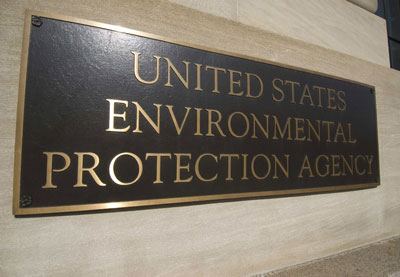The Environmental Protection Agency’s (EPA) endangerment finding gives the agency justification to regulate greenhouse gas emissions, most notably carbon dioxide (CO2), under the Clean Air Act (CAA). The EPA already began targeting motor vehicles last year and will start regulating emissions from new power plants and major expansions of large greenhouse-gas-emitting plants (more than 25,000 tons of CO2 per year) this year.
Several Members of Congress released or plan to release bills to either delay or prohibit the EPA’s ability to regulate greenhouse gases. Some ideas are better than others; unfortunately, the proposal garnering the most support in the Senate is also the least effective. Senator Jay Rockefeller (D–WV) wants to delay the EPA’s ability to regulate CO2 for two years, but this is not the right approach for Congress to take. Voting for a two-year delay is nothing more than a political cover. It’s not a step in the right direction and will do more harm than good by creating uncertainty and leaving the endangerment finding intact.
One problem with a two-year delay is that it creates uncertainty for energy-intensive businesses looking to build new projects or make major expansions. Heritage expert Bill Beach explained this well, saying:
What can increase risk for investors and businesses? Many factors, of course, but public policy commonly looms largest. For example, tax increases, especially on capital, increase the cost of capital and lower investment returns. When investors are uncertain about whether taxes will increase or stay the same, they can still act as though taxes have risen if they judge the risk of an increase to be nearly equal to an actual increase. And rising uncertainty can have the effect of driving down investments in riskier undertakings.
Since America gets 85 percent of its energy from carbon-emitting fossil fuels, CO2 regulations would act as a massive energy tax. From planning to construction and operation, such projects have much longer time horizons than two years. Not knowing whether a two-year delay will be renewed in two years or if the energy tax will go into effect in two years will deter businesses from making new investments and creating jobs at a time when they’re most needed.
Another serious problem with a two-year delay, specifically the Rockefeller bill, is that the EPA can still regulate CO2 under the National Ambient Air Quality Standards (NAAQS) program. If CO2 becomes an NAAQS, it would trigger requirements that could be met only by severely curtailing economic activity. As David Lungren of the Senate Environmental Public Works Committee put it, “A CO2 NAAQS would twist the CAA into knots and spread EPA’s regulatory tentacles into every corner of the economy.”
Fortunately, there are far better alternatives to rein in the EPA’s regulatory invasion. Most recently, Senator James Inhofe (R–OK) and Representatives Fred Upton (R–MI) and Ed Whitefield (R–KY) released a discussion draft that would remove the EPA’s power to regulate CO2 and other greenhouse gases. Senator John Barrasso (R–WY) recently introduced a bill that is more encompassing. His would prevent the EPA and other federal regulators (such as the U.S. Fish and Wildlife Service) from using any environmental act to impose regulations based on climate findings, including the CAA, the Endangered Species Act, the Clean Water Act, and the National Environmental Policy Act.
Congress needs to enact policy that would permanently prevent unelected bureaucrats from regulating CO2 and the catastrophic economic consequences that come along with it. Only this approach would provide the regulatory certainty American businesses need.
First appeared in National Journal.
Source material can be found at this site.










